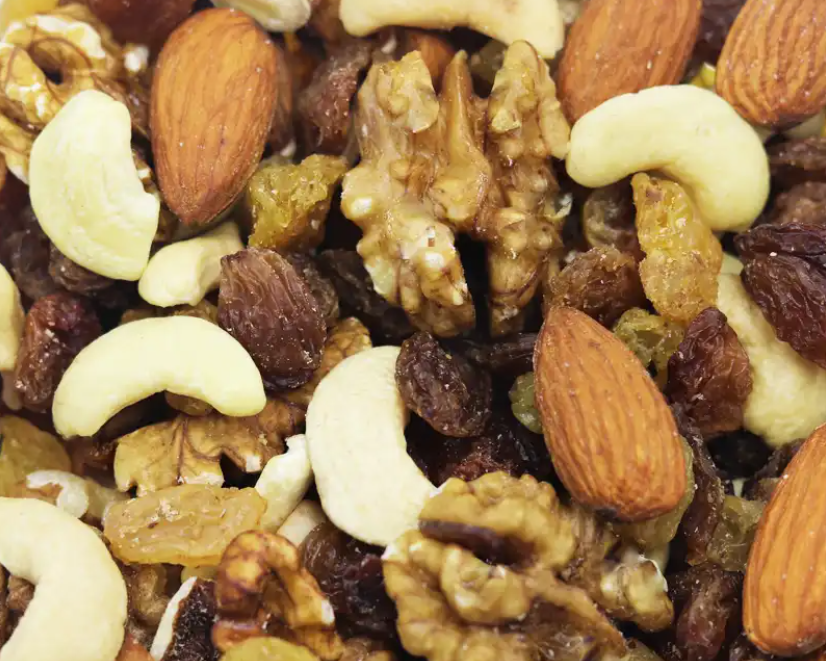When it doesn’t turn out right, try turning left. Forced to take a left turn I have bumped into some old friends, made some new friends and started exploring some new things.
It re-started with Dr Michael Mosley
Dr Mosley is an easy listen, no-nonsense science presenter, journalist and author who I first bumped into on Horizon’s “Eat, Fast and Live Longer,” back in 2012. The programmes “life-changing results,” were followed up in 2013 with the now million-copies-selling, international best seller, and now updated The Fast Diet (introducing 5:2 fasting) and he followed it up with a range of other on topic titles, – exercise, sleep, diet and recipe books.
He is, and his bite-sized advice appears all over the various news distributors. You will not have a hard time finding him online and in this day and age of monitored internet browsing, he is likely to find you first. Broadly speaking, Dr Mosley advocates towards a Mediterranean diet, intermittent fasting and time-restricted eating. It is not just the what, but the when and how to enjoy a healthy relationship with food.
Here is the first connection. His digestible and wholesome 48 episode 15-30-minute podcast series “Just One Thing” (I hope the irony of that title is not lost on others, that is 48 “one things”) concluded with Mosley’s conversation with Professor Tim Spector, arguably the world’s leading authority on gut microbiome research – more simply gut health.
(Incidentally, this week five more episodes were released on the podcast under the banner of “Stay Young.” Stay Fit, Sharp, Looking Young, Feeling Good and Strong.)
Message 1: a, b and c: a) Mediterranean diet, b) fasting and intermittent fasting and c) time-restricted eating or TRE. All covered in his Fast Diet book.
Message 2: Let’s be sensible about this. It’s our relationship with food that is important.
Message 3: On ‘how’ – rapid weight loss, done properly, safely, can be very motivating and sustained. It was for me.
Now pause: Walk around, do two minutes of high-intensity ‘something,’ boost your BDNFs (brain-derived neurotrophic factor) and recharge your power cells or mitochondria, before reading on.
Professor Tim Spector
Professor Tim Spector’s is an even more of a no-nonsense commentator, possibly given the success of his “citizen-science” approach to research. Why is this important? Previously, nutritional researchers were “Davids pitched again the food industry Goliaths,” either funded by food companies or drowned out by them. His #1 best selling book Spoon fed: Why almost everything we’ve been told about food is wrong is an eye-opening read.
Dr Spector’s messaging generally supports Dr Mosley’s but not all, it amplifies a number of dietary recommendations and a more holistic and relational approach to nutrition, and prominently signposts very loudly the importance of a healthy gut or healthy gut microbiome (technically microbiota).
He is the scientific co-founder at ZOE. ZOE is a health science company he founded with Jonathan Wolf and George Hadjigeorgiou. Yes, ZOE is in the business of personalised nutrition and untangling “the many interrelated and multidirectional determinants of our responses to food” and hats off to them – their podcast (long 45-6 mins and short 15 mins) covers most of the main topics of your first 82 days“-100 days, the team answers almost all of the BIG questions, your initial questions and queries and their articles are excellent and informative, what is more, there are plenty of springboards and signposts (the second 100 days).
The relative social and financial success of ZOE was discussed by Stephen Bartlett’s Diary of a CEO podcast. Interestingly, Bartlett is using his own podcast to promote his investment.
As a Professor in Genetic Epidemiology at King’s College London, he spent most of his career researching how our life choices and events fuse with our genes in 15,000 identical and non-identical twins studies twinsuk.ac.uk. After spending years expecting to find that genetics would explain much of why people are the way they are (if to some extent they do) and his research directed him to investigate the composition of our gut microbiome more closely. Specifically, when twins ate identical meals, Dr Spector discovered that their food responses could vary hugely and were influenced by the health of their gut microbiome. Furthermore, most recently I learnt that Dr Spector was particularly interested in ‘discordant’ twins, those sharing genes but presenting very differently – linking almost seamlessly to the third ‘who.’ (He also reports on differing vegetarian/vegan twin diet. Veg/vegan on average 1.3 kg slimmer.)
The gut microbiota is a complex ecosystem of mostly bacteria, and also viruses, fungi, and protozoa/parasites (Dr Spector is very keen to introduce you to Blastocystis). He encourages us to think of our guts as ‘chemical factories,’ right where most of the body’s immune cells are located. As the intermediary between our food and our immune system, they are not just fighting infections and enhancing our metabolism, they are also fighting ageing and picking off early cancers. Whilst this is all very interesting, two key points underpin Dr Spector’s commentary and are being amplified by the team at ZOE.
The microbiota is a “major modifiable factor.” Second, there is no one right way to eat, understanding your own biology is key. Wide variations between individual responses (lipemic and glycemic) to the same food (up to tenfold), makes a mockery of ‘averages’ and most common nutritional advice and this includes differences between identical twins who share all their genes and much of their environment. Less than 30 per cent of the variation between individuals sugar responses is due to genetic make-up and less than 5 per cent for fat. However, Dr Spector would suggest (and I hope that I have this correct) repeatable, predictable nutritional responses to different foods (depending on the proportions of protein, fat and carbohydrates) can be used to personalise our nutrition. ZOE are keen to confirm that “we are not prisoners of our genes” and that we need to look beyond the calories.
Message 1: The microbiota is a “major modifiable factor,” and that there are strong links between the foods a person eats, the microbes in their gut (microbiome) and their health. Gut health changes the way our body’s work. Fermented foods (Greek yogurt most mornings here) and the four Ks – kefir, kombucha, kimchi and kraut.
Message 2: Average is nonsense. We need to move away from one size fits all dietary advice (particularly with respect to calorie intakes, whilst we are here, ignore inaccurate calorie estimates of portions).
Message 3: Diversity or eating a variety of plants matters and adding colour. Dr Spector and Dr Mosley both talk about the importance of plant fibre and polyphenols (a diverse family of antioxidants and foods with anti-inflammatory, antifungal, and antibacterial properties). In particular, nuts, berries, seeds, brightly colored fruits, extra virgin olive oil, and vegetables, and dark chocolate – for the win!
Message 4: Live first. He urges us to change the way we think about food. It’s not just fuel. It is most certainly not calories in, calories out. Calorific estimates are unreliable at best, misleading at worst.Experiment, slow-down, enjoy the food and the company. Experimenting is where I am finding ‘”triumphing'” the 30 or more plants target a great habit builder.
Message 5: Warns about ultra-processed foods (UPFs) including sweeteners. On UPFs, Dr Spector is unequivocal and unapologetic.
Message 6: Research on intermittent fasting is ongoing however research has suggested that intermittent fasting can help people lose weight and reduce their risk of type 2 diabetes and heart disease.
My next chance encounter was a conversation between Dr Mosley and Dr Spector recorded live at the Hay Festival on BBC Radio 4. Well worth a listen. It would appear I was not the only one that felt that they were being misled by mass communications and the food industry with both Dr Mosley and Dr Spector reflecting on their past nutrition, wellness (exercise) and nutrition habits.
Dr Chris van Tulleken
Broadening my interest and reading, led to conversations at work signposting recent media from Dr Chris van Tulleken (Associate Professor – UCLH and The Hospital for Tropical Diseases), specifically Panaroma’s Ultra-Processed Food: A Recipe for Ill Health? I should also add that Dr Tulleken just so happens that one such aforementioned ‘discordant’ twins with his brother Xand gaining 20kg after moving to the US.
This is a very precarious conversation where nutrition, wellness, habits, economics and ethics collide. It feels like a throwback to the turkey Twizzler debates with more data. Go back and listen to the conversation between Dr Mosley and Dr Spector at the Hay Festival. Hear what they say and how they say it. UPFs lead you to (are designed to) over-eat (by about 500 calories), leave you feeling unsatiated and these foods reduce life expectancy, lead to type 2 diabetes and obesity… “these foods are cheap but very dangerous foods. Eat it at your peril,” – Dr Spector. Look out for a post, when I get time, on the impact of not getting the calories replaced by sweeteners.
Here Dr van Tulleken picks up the baton with “Ultra-Processed People: Why Do We All Eat Stuff That Isn’t Food … and Why Can’t We Stop?“
Ultra-processed food or UPFs is relatively new, coined by researchers in Brazil, widely adopted by NGOs, activists and researchers, it described four food groups:
- Group 1 “unprocessed or minimally processed foods,” (meat, fruit, flour and pasta)
- Group 2 “processed culinary ingredients” (oils, butter, sugar, honey and starches)
- Group 3 “processed food” or ready-to-eat mixtures of the first two, (processed for preservation eg beans, salted nuts, smoked meat and notably, “proper freshly made bread”).
- Group 4 “ultra-processed foods,” defined as formulations of ingredients “mostly of exclusive industrial use, made by a series of industrial processes, many requiring sophisticated equipment and technology.”
If it’s wrapped in plastic and it contains at least one ingredient that you don’t find in a typical domestic kitchen then it’s an ultra processed food.
Dr Chris Van Tulleken
Van Tulleken does not pull any punches. You can watch or listen for yourself. Channel 4’s Krishnan Guru-Murthy’s interview coincided with publication of the book.
UPFs often include emulsifiers. Remember the importance of the microbiome. These emulsifiers change the thickness of the gastrointestinal mucus and altering the populations of bacteria in the microbiome.
Message 1: UPF is processed mainly to maximize profit, with extremely low-cost ingredients and long shelf life.
Message 2: UPFs are “designed for over-consumption” or “hyper-palatability.”
Broadly speaking, the fewer the ingredients, the less processed the product is likely to be. As Dr Spector highlights, with a rise in snacking eating habits and ever growing availability of HPF means we are eating large r amounts of preservatives, emulsifiers, enzymes and artificial sweeteners, despite a lack of data on their long-term effects, especially in combination.
And so the relearning continues.
A next step or list of researchers whose work I find interesting:
Alternative day fasting or intermittent fasting or time restricted eating: Professor Mark Mattson, Dr. Satchin Panda, Dr Emily Manoogian, and Professor Jonathan Johnston (circadian cycles, TRE or time-restricted eating and chrono-nutrition). Dr Justin Sonnenburg on the gut and inflammation. Nutritional scientist Kirsten Berding Harold @BerdingHarold.
Nutritional Scientist
On why TRE may help weight management. Counting calories is unreliable and inaccurate. Counting hours is not. Links here to nutrition habits and ‘stickability.’
Longevity: Professor Luigi Fontana and Professor Valter Longo and bio-organic chemist Professor Khosro Nikpay (fibre and gut health).
Reversing Type 2 Diabetes and ongoing remission: Professor Roy Taylor’s 5 Minutes Diabetes explainer is a great and accessible place to start. The solution a very low calorie diet (825–853 calories per day for 3 to 5 months), followed by the stepped reintroduction of food over two to eight weeks and support throughout (including cognitive behaviour therapy and were encouraged to exercise.)
Popular commentators:
On the radar, Rich Roll (vegan, ultra-endurance athlete, former entertainment attorney turned full-time wellness and plant-based nutrition advocate), Jessie Inchauspé (biochemist and author aka Glucose Goddess) and Dr Rangan Chatterjee (doctor, presenter and commentator) and Dr Alan Desmond on whole food plant based diets. Sandor Katz on fermented foods.
Somewhat tongue in cheek, I have read numerous editions of your “First 100 days.” Your first 100 days as headteacher, as a new leader, as coach… I did not quite make it to 100. Here is “Nutrition, well-being and habits at 82 days” review.
What I have also learnt is the importance of “habit” and taking that thread on experimenting, exploring and living. Experimenting with food, exploring the springboards and signposts and building habits.
Food fermentation: Yogurt, vegetables (connects to wellness both immunity and community) and sour dough.





Pingback: Nutrition, well-being and habits at 82 days – Edventures